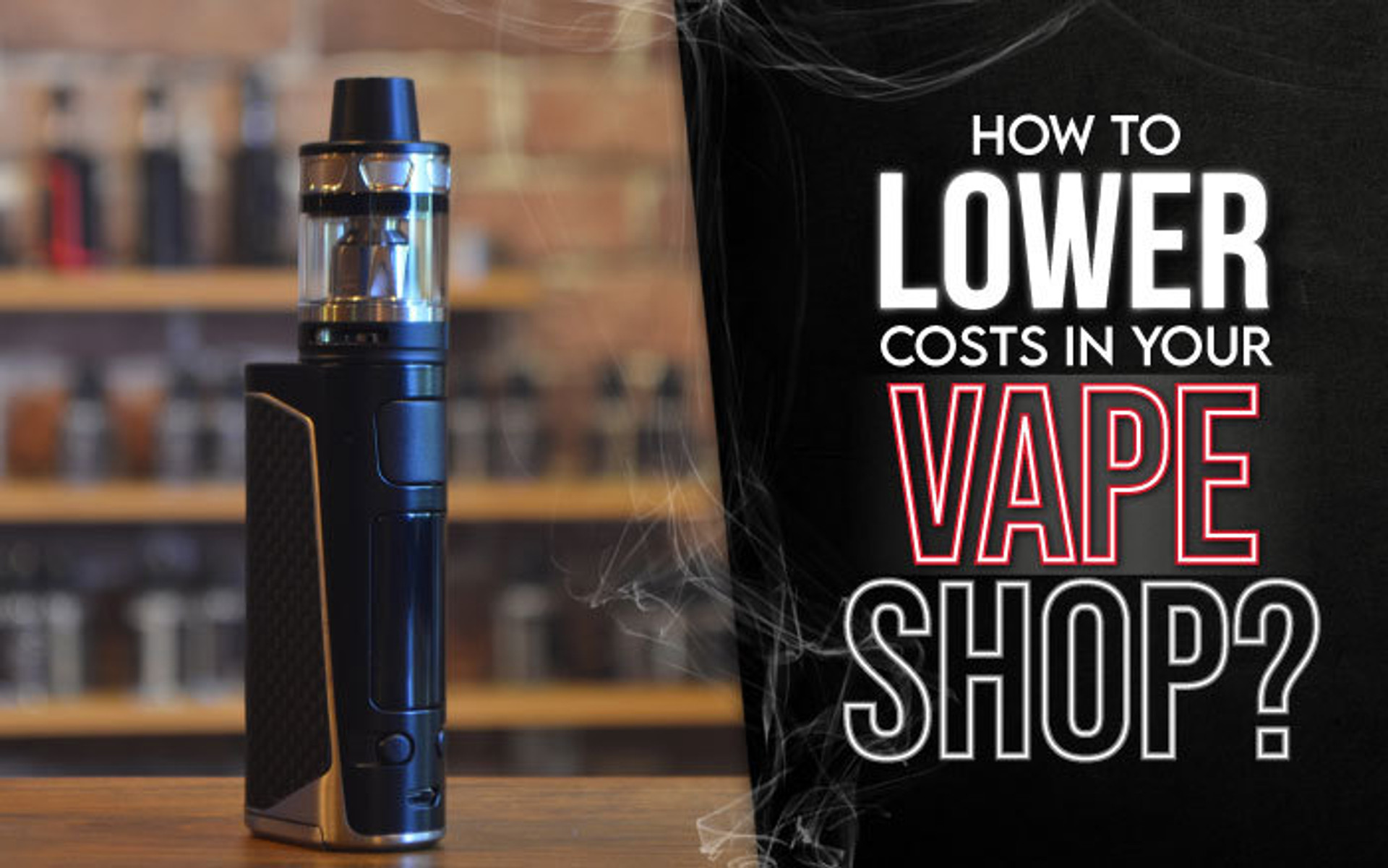Smart Strategies to Reduce Vape Shop Costs in 2025
Estimated 0 min read
Running a vape shop in 2025 means balancing tighter regulations, competitive pricing, and changing consumer demand. Saving money is no longer just about increasing profit margins, it’s about ensuring your store remains competitive in a market with increasing wholesale opportunities and stricter compliance requirements. The key: cut costs strategically without sacrificing product quality or customer trust.
Table of Contents
- Choosing Affordable E-Liquids Without Compromising Quality
- Saving Through Bulk Purchasing & Wholesale Accounts
- Balancing Product Nicotine Strengths
- Investing in External Battery Devices
- Hybrid Strategy: Mix Fast-Moving Inventory with Dropshipping
- Final Thoughts for Vape Retailers
Choosing Affordable E-Liquids Without Compromising Quality
The phrase “cheap e-liquids” often sparks worry about poor quality, but in today’s market, affordable doesn’t always mean low-grade. Thanks to stricter manufacturing standards and a highly competitive wholesale landscape, many brands offer premium, safe, and flavorful e-liquids at lower price points.
Best practices for vape retailers in 2025:
-
Partner only with reputable distributors who comply with safety certifications.
-
Focus on fast-moving flavors (fruit, menthol, dessert) that guarantee turnover.
-
Diversify pricing tiers (premium, mid-range, and value e-liquids).
Saving Through Bulk Purchasing & Wholesale Accounts
One of the simplest ways to reduce your vape shop costs is buying wholesale in bulk. The price per bottle, pod, or device drops significantly when ordered in larger quantities.
Example scenario for 2025:
-
Buying 20 bottles individually = higher cost per unit.
-
Buying 200 bottles wholesale = lower cost per unit, higher profit margins.
Pro Tip: Use sales forecasting tools to predict which products are worth stocking for 1–2 months in advance. This avoids overstocking slow movers while maximizing margins on best-sellers.
Balancing Product Nicotine Strengths
Not every vaper seeks high-nicotine e-liquids. Many customers, especially in 2025, prefer lower nicotine or zero-nicotine options as part of harm reduction or personal preference.
Offering a balanced product lineup helps you:
-
Retain a broader customer base (new users, ex-smokers, casual vapers).
-
Lower per-unit costs (zero/low-nicotine liquids often have reduced tax or compliance costs in certain regions).
-
Encourage repeat sales of more bottles with lower nicotine levels.
Retailer Strategy: Stock 30–40% low/zero nicotine products alongside 60–70% standard nicotine items.
Investing in External Battery Devices
Disposable vapes remain popular, but cost-conscious vapers in 2025 are looking for reusable systems with replaceable batteries.
Why this matters for retailers:
-
Devices with removable batteries = longer device lifespan.
-
Customers spend less replacing entire kits → but buy more e-liquids and pods instead.
-
Retailers maintain disposable sales while expanding into battery + pod refill cycles.
This shift doesn’t reduce revenue: it reshapes it toward recurring liquid sales, which often have better margins.
Hybrid Strategy: Mix Fast-Moving Inventory with Dropshipping
A rising trend for 2025 is the hybrid inventory model:
-
Keep best-selling items in stock (disposables, popular e-liquids).
-
Dropship slow-moving or niche items to reduce overhead.
Comparison Table: Carrying Inventory vs. Dropshipping
| Model | ✅ Pros | ❌ Cons |
|---|---|---|
| Dropshipping | - Low startup costs - No storage risk |
- Limited supply chain control - Lower margins |
| Carrying Stock | - Bulk discounts - Faster fulfillment |
- Higher upfront investment - Storage + shipping costs |
| Hybrid Model | - Best of both worlds - Reduces risk |
- Requires careful planning |
Best practice: Keep fast sellers in bulk (top disposables, e-liquids) and dropship specialty or seasonal products.
Final Thoughts for Vape Retailers
Lowering vape shop costs in 2025 is about working smarter, not cheaper. By sourcing quality affordable e-liquids, leveraging bulk wholesale, diversifying nicotine strengths, offering reusable battery devices, and adopting a hybrid inventory model, vape shop owners can:
-
Protect margins
-
Meet evolving customer needs
-
Stay competitive in a highly regulated market
If you’re ready to optimize your vape shop’s profitability, consider setting up a wholesale account today and plan your next quarter with cost savings in mind.








